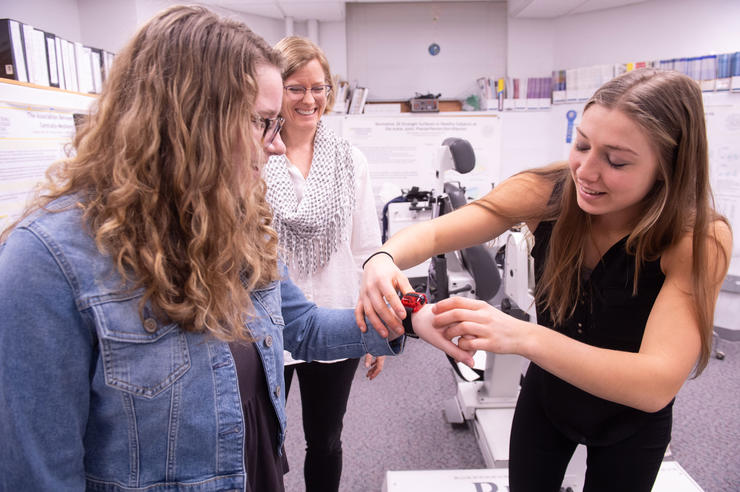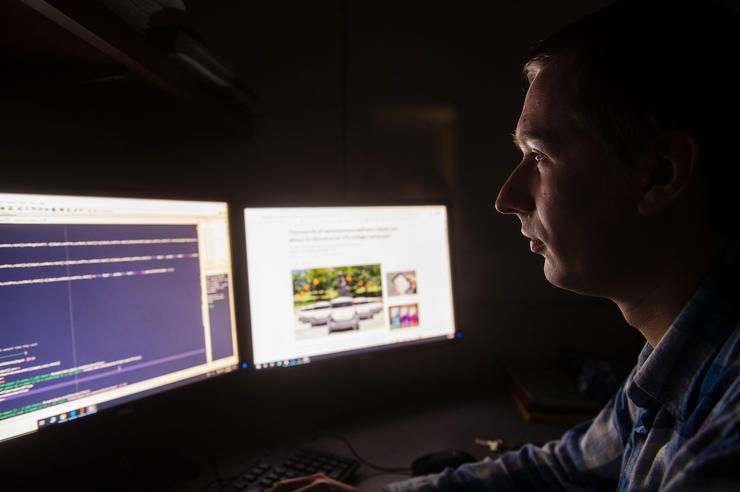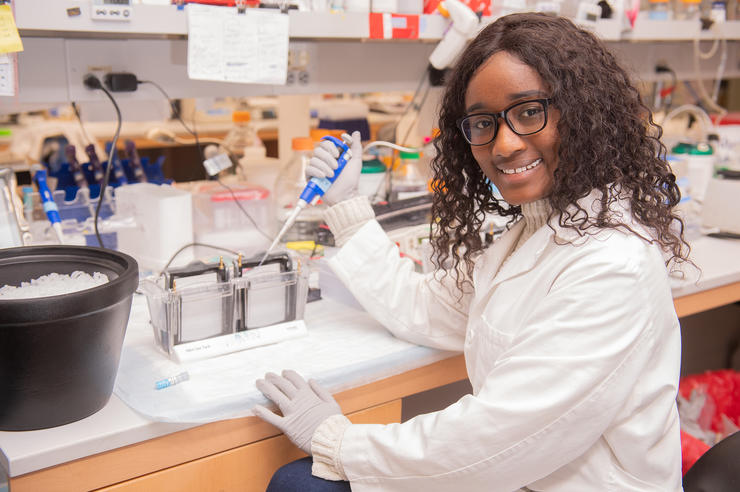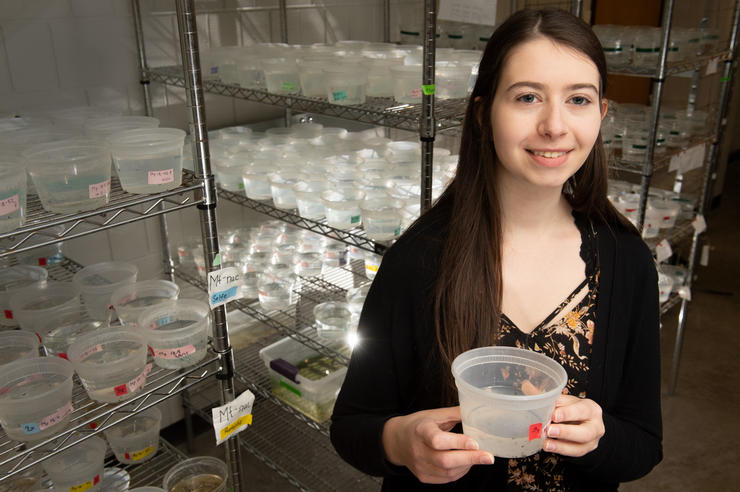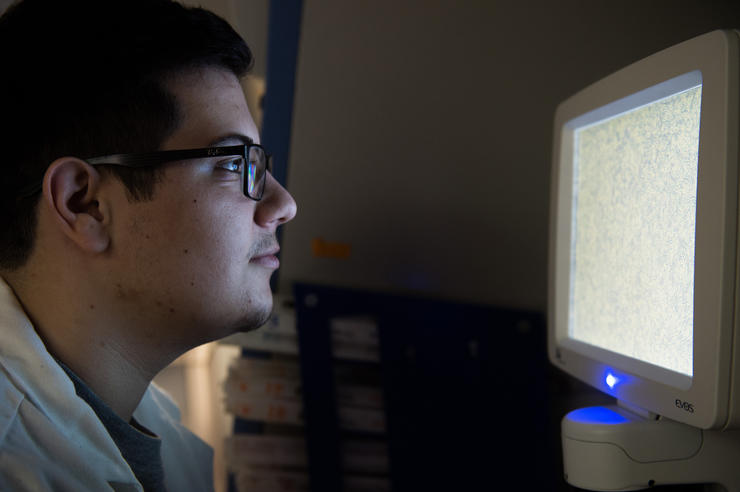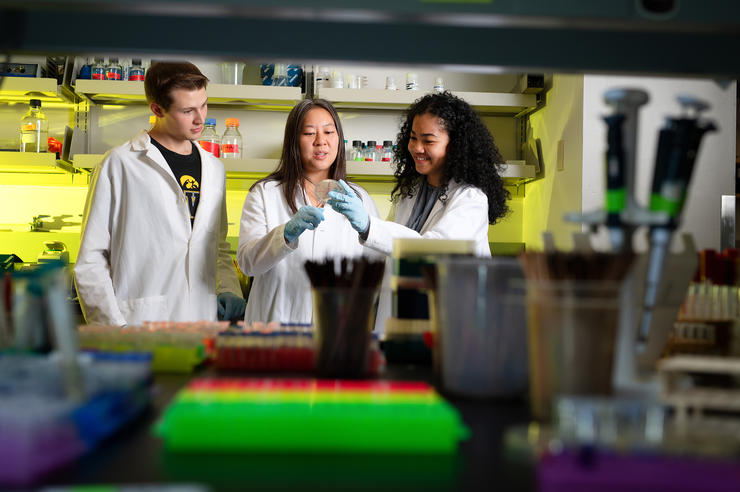Researching origins of bias, prejudice
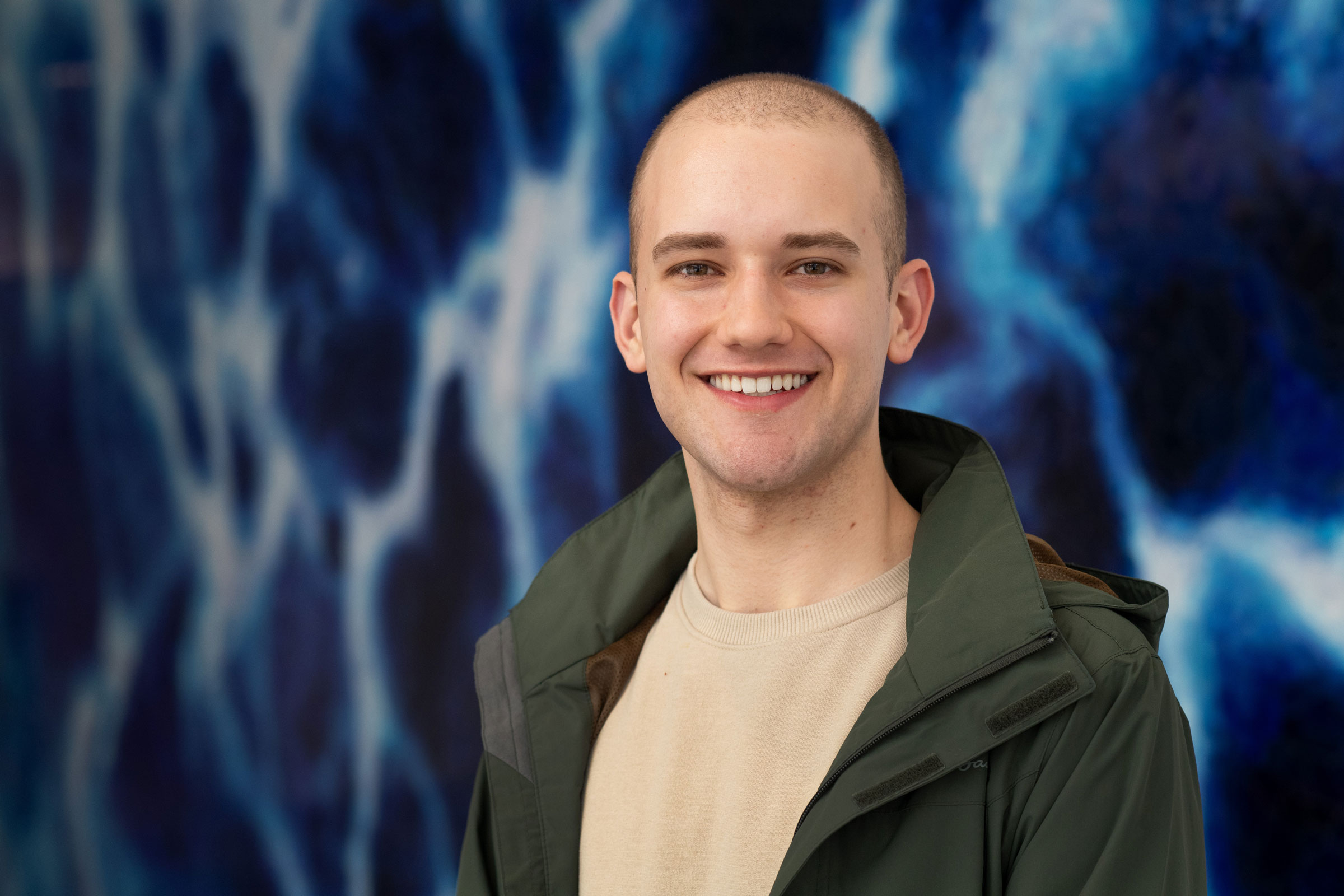
Bernardo Pohl Duarte dreams of a more just society—not through laws or policies, but through changing how we think about others.
Duarte, a senior at the University of Iowa majoring in psychology, wants to understand the origins of prejudice and bias in people, with the ultimate goal of leveraging that knowledge to design tactics to dim, if not eradicate, those attitudes.
“I’d like to understand in the brain how we develop those attitudes—what drives us to act upon them, whether that’s an automatic process or something that’s more controlled when we think about them,” says Duarte, who will graduate this spring. “If those attitudes are created through experiences in your life, then it can be argued that they can be dismantled or reduced.”
Duarte is accustomed to looking at life through a worldly lens. He was born in Brazil and lived in Itumbiara, in the agriculturally rich state of Goias, until he was 8 years old. He then moved to Guadalajara, Mexico, when his father earned a promotion with the seed company Pioneer. After five years in Guadalajara, the family moved to Johnston, Iowa, the headquarters for Pioneer.
Through it all, he fit right in.
“Language-wise, I don’t think the transition was very hard,” says Duarte, whose classes at school in Mexico were taught in either Spanish or English. “I think the cultures are very different, though. The cultures in Brazil and Mexico are widely shared, and there’s the warmth that’s shared with people in those countries. In the U.S., you have this bubble of space, and that’s different. The people in Iowa are very welcoming, and I think that would have been different if we had moved somewhere else.”
“I would see people posting about inequities, and what people were doing about it. Those things interested me as a gay person who is an immigrant—all of those things about equity and social justice apply to me and to my friends as well.”
Duarte followed his sister to the University of Iowa, lured by the academics and the campus’s welcoming vibe. He entered with an interest in biology but re-examined his pursuits when he visited a U.S. Bureau of Labor Statistics site that matched potential jobs to one’s interests. The site indicated psychology would be a good fit.
He took an elementary psychology class, then a social psychology class. “That’s when I really went full into it,” Duarte says. “It resonated so strongly with me, social psychology, and it still does today.”
From there, another class, Foundations of Critical Cultural Competence, in the School of Social Work, refined Duarte’s interest to look at the psychological factors behind prejudice and stigmatization of minorities.
“I think that class solidified my interest, as did social media, where I would see people posting about inequities and what people were doing about it,” he says. “Those things interested me as a gay person who is an immigrant—all of those things about equity and social justice apply to me and to my friends as well.”
Duarte took to his psychology classes, but he was less sold on working in a research setting.
“I honestly didn’t like research at all at first,” Duarte says. “I joined simply because it would be good for my résumé.”
Duarte hooked up with Paul Windschitl, professor in the Department of Psychological and Brain Sciences, who looks at how wishful thinking in people affects their perception of how things work out.
“People often let their desires for an event inflate their expectations that the event will occur. Importantly, people tend to make decisions based on such expectations,” Duarte says. “The ‘wishful thinking’ effect may have a strong impact in domains such as climate change, testing new medical treatments, legal trials, et cetera. Our research can help people make more accurate predictions of the likelihood of certain outcomes happening, which may lead to better decision-making.”
Bernardo Pohl Duarte is one of 21 undergraduate students featured in the University of Iowa’s Dare to Discover campaign, which showcases researchers, scholars, and creators from across the University of Iowa on banners throughout downtown Iowa City.
Duarte realized he enjoyed the research environment because it added dimensions beyond academics, such as testing current theories in social psychology with real participants and learning more through findings in Windschitl’s lab and by other researchers in the field.
“I liked it,” says Duarte, who joined with Windschitl the fall of his junior year. “I got to engage with people, and I got to learn more about the research process in psychology.”
The next year, Duarte was promoted to co-lab manager. As such, he helps oversee the lab’s operation, which includes training research assistants, developing protocols, procuring supplies, and regularly briefing Windschitl on the research.
“I’ve enjoyed trying to create a welcoming environment for the new research assistants,” Duarte says. “I know research can be very intimidating, and some of these assistants are joining their first lab ever. I tell them, ‘You can make mistakes, it’s chill,’ and I share my experiences as a research assistant.”
Duarte now envisions a career as a researcher in social psychology. He plans to gain some work experience and then apply to doctoral programs.
Windschitl thinks Duarte will be successful no matter what he pursues.
“He has all the traits—he’s smart, inquisitive, creative, organized, determined,” says Windschitl, who has been at Iowa since 1997. “I have high hopes and expectations for him.”
